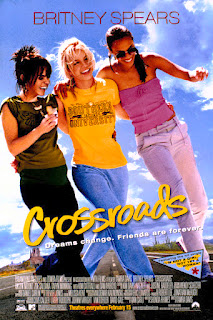This is the one day of the year where, almost universally, people are seeking clarity. Even now, as I lay in bed typing this blog I am overwhelmed. I'm overwhelmed by this desire to change everything in my life. Was 2012 bad? Nope. But 2013 has to be better. That's the product that New Year's Eve is selling: better.
I said in Clarity Part 1, that I couldn't write just one blog about Ruth. Last week I wrote about Ruth's selflessness, and how in looking out for someone else, she obtained a blessing. The second thought comes out of the first few verses of Ruth 1.
In the days when the judges ruled, there was a famine in the land. So a man from Bethlehem in Judah, together with his wife and two sons, went to live for a while in the country of Moab.- Ruth 1:1
In the days when the judges ruled
This period begins immediately after the death of Joshua (who saw the Israelites into the Promised Land; see Judges 1:1). That timeframe was characterized by a specific decision-making process:
In those days Israel had no king; everyone did as they saw fit.- Judges 17:6
I was thinking on "in the time of judges" which is characterized by "when men did what was right in their own eyes", a self-centered form of seeking wisdom.
Famine in the Land
 |
| famine |
There is a way that seems right to a man, but in the end it leads to death. - Proverbs 14:12
Ack! That scripture is so scary to me, because I think I'm right all the time. And what I think is right might be dead wrong...literally!
And so it was for Naomi and family. In Moab, Elimelek and his two sons died. There is no record of him praying or seeking God. There's no record of him seeking godly counsel. I'm sure he didn't just make a rash decision, though. He probably really thought it over. But ultimately, he did "what was right in his own eyes."
This led me to thoughts on meditation, which is all the rage right now. I have NOTHING against meditation as a means of emotional wellness. Clear your mind. Breathe deep. Think on beauty and light (which is totally biblical anyway; see Philippians 4:8); however, the Bible has specific instruction on meditation*:
- Keep this Book of the Law always on your lips; meditate on it day and night, so that you may be careful to do everything written in it. Then you will be prosperous and successful. - Joshua 1:8
- You keep him in perfect peace whose mind is stayed on you, because he trusts in you. - Isaiah 26:3
- My eyes are awake before the watches of the night, that I may meditate on your promise. Psalms 119:148
- I shall remember the deeds of the Lord; Surely I will remember Your wonders of old. I will meditate on all Your work and muse on Your deeds. Psalms 77:11-12
- Oh how I love your law! It is my meditation all the day. Your commandment makes me wiser than my enemies, for it is ever with me. I have more understanding than all my teachers, for your testimonies are my meditation. - Psalms 119:97-99

So back to Elimelek. If he had prayed and waited on the Lord, things may have turned out differently for him and his two sons. Because it was back in Bethlehem, the place that he left, where Naomi heard God was blessing people. Would he have left if he had meditated on the promises of God? Probably not...b/c who leaves the "Promised Land" if they are thinking of it as such? Would he have left if he had meditated on the mighty works of God? Probs not...not if he was thinking about deliverance out of Egypt, or the manna in the wilderness, or cloud by day/fire by night.
The "perfect peace" Isaiah speaks of is corrupted when I view this day outside the lens of scripture. This day is about lists, resolutions, and new beginnings when I meditate on me. December 31st is reduced to just another day when I meditate on God, because then I know:
Because of the Lord’s great love we are not consumed, for his compassions never fail. They are new every morning; great is your faithfulness. I say to myself, “The Lord is my portion; therefore I will wait for him.”
- Lamentations 3:22-23
With God every day is new...not just January 1st.
So hold up...Clarity = pray and wait?
Darn...no one wants to hear that either.
*Disclaimer: I'm not saying you can never have non-religious meditation. Do it. Knock yourself out. What I am saying is that meditating on the Lord is the biblical prescription for peace/clarity. I don't think meditation is wrong, worthless or anything like that.





